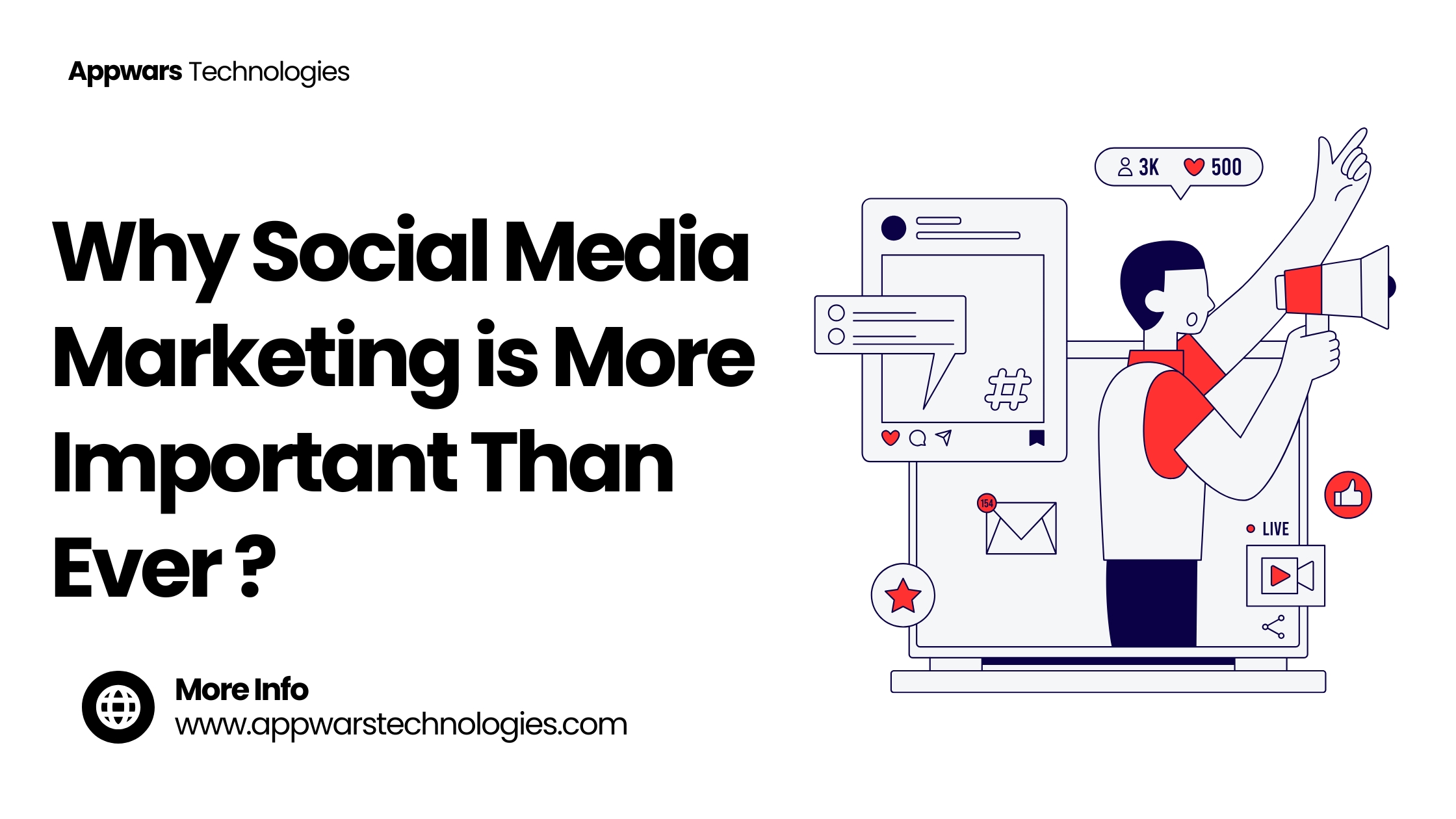In today’s fast-paced digital world, social media marketing has evolved from a supplementary marketing tool into an essential pillar of business strategy. As businesses face increasingly competitive markets, connecting with consumers and establishing brand loyalty has never been more critical. Social media platforms have emerged as effective channels to achieve these goals and offer various benefits that continue to grow in value. Here, we explore the reasons why social media marketing is more vital than ever for businesses looking to stay relevant, build relationships, and drive growth.
1. Unmatched Reach and Accessibility
With billions of active users across platforms like Facebook, Instagram, TikTok, LinkedIn, and Twitter, social media provides businesses with direct access to a vast audience. Unlike traditional media, social media platforms offer unique targeting options, allowing brands to reach specific demographics based on interests, age, location, and online behaviour. This makes it easier for companies of any size to reach potential customers without breaking the bank.
Moreover, with smartphone penetration reaching new heights globally, people can access social media almost anywhere, anytime. This continuous accessibility allows brands to engage with their audience more frequently, nurturing a sense of connection and familiarity that ultimately drives loyalty and trust.
2. Powerful Tool for Brand Building
Social media offers a unique, authentic way to tell a brand’s story, showcase its values, and build a recognizable image. Consumers today are more inclined to support brands that align with their values and exhibit transparency. Through posts, videos, stories, and live streams, businesses can showcase their culture, highlight their achievements, and engage with followers on a personal level.
User-generated content (UGC) is another powerful way to foster brand loyalty. By encouraging customers to share their experiences with products, companies can cultivate a community around their brand. These customer-driven endorsements not only strengthen brand image but also serve as social proof for potential customers, building trust and credibility.
3. Enhanced Customer Engagement and Relationship Building
Social media is more than a broadcasting tool—it’s an interactive platform that allows brands to communicate directly with their audience. By responding to comments, addressing complaints, and sharing valuable insights, companies can build meaningful relationships with their customers. Unlike traditional marketing, where messages are sent in one direction, social media facilitates a two-way conversation that fosters deeper engagement and emotional connection.
The shift towards real-time interactions on platforms like Twitter, Instagram, and Facebook has amplified customer expectations for prompt responses and resolution. Brands that actively engage in customer interactions on social media show that they value their customers, improving customer satisfaction and brand loyalty.
4. Data-Driven Decision Making
Social media provides an unparalleled source of data for businesses to analyze customer behaviour and preferences. Platforms like Facebook Insights, Twitter Analytics, and LinkedIn Analytics offer detailed reports on engagement metrics, audience demographics, and content performance. With this information, brands can make informed decisions, refining their strategies and content to better appeal to their target audience.
Data from social media also allows businesses to identify trends and predict customer needs, which can drive the development of new products and services. Leveraging data-driven insights can help brands stay one step ahead of the competition by providing solutions that resonate with their audience.
5. Cost-Effective Marketing
One of the main reasons social media marketing is crucial for businesses today is its affordability. Compared to traditional advertising methods like TV commercials, billboards, and print media, social media offers a much more affordable alternative with a potentially higher return on investment (ROI). Paid ads on social media platforms allow businesses to start with relatively low budgets and scale up as they see results, making social media accessible for businesses of all sizes.
Organic social media marketing, although requiring time and effort, allows brands to connect with their audience without needing to spend large amounts. Consistent posting, sharing engaging content, and interacting with followers can yield significant brand visibility without the hefty costs associated with traditional advertising.
6. Increasing Influence of Social Proof and User Reviews
Consumers today rely heavily on social proof, such as user reviews, influencer endorsements, and recommendations, when making purchasing decisions. Social media has become a key hub for this information, with users frequently sharing reviews, product recommendations, and customer experiences. Potential customers can quickly see how other people are experiencing a brand or product, influencing their own choices.
Influencer marketing has also seen rapid growth, with social media influencers having a tremendous impact on followers’ purchase decisions. Brands can leverage this by collaborating with influencers who align with their values and target audience, creating authentic partnerships that showcase their products in relatable contexts.
7. A Platform for Creativity and Innovation
Social media allows businesses to embrace creativity and experiment with various forms of content, such as videos, GIFs, infographics, and live streams. This flexibility enables brands to stand out from the competition and capture the audience’s attention in new, engaging ways. The constant evolution of platform features, such as Instagram Reels, YouTube Shorts, and TikTok, encourages brands to explore fresh, visually appealing content formats.
Interactive formats like polls, quizzes, and live Q&A sessions have also made it easier for businesses to interact creatively with their audience. These innovations not only enhance engagement but also provide brands with direct feedback and insights, fostering a collaborative relationship with customers.
8. Adaptability to Changing Consumer Behavior
Consumer behaviour is constantly changing, and social media platforms are adept at adapting to these shifts. During the COVID-19 pandemic, for instance, brands turned to social media to maintain visibility, as customers increasingly shopped online. Today, platforms continue to adjust their algorithms and features to accommodate new consumption trends, such as short-form video content and e-commerce integrations.
Businesses that prioritize social media marketing can more quickly adapt their strategies to align with these changes. With features like shopping directly on Instagram or Facebook, brands can provide a seamless purchasing experience, meeting consumer demand for convenience and efficiency.
Conclusion
As consumer expectations and behaviours continue to evolve, the importance of social media marketing only grows. Social media offers unique opportunities for brands to reach their audience, engage authentically, and drive business growth in a cost-effective way. By prioritizing social media, brands can foster meaningful relationships, leverage valuable customer insights, and stay ahead in a highly competitive digital landscape. Now more than ever, businesses that embrace social media marketing as a central component of their strategy are well-positioned for long-term success in an increasingly digital world.







